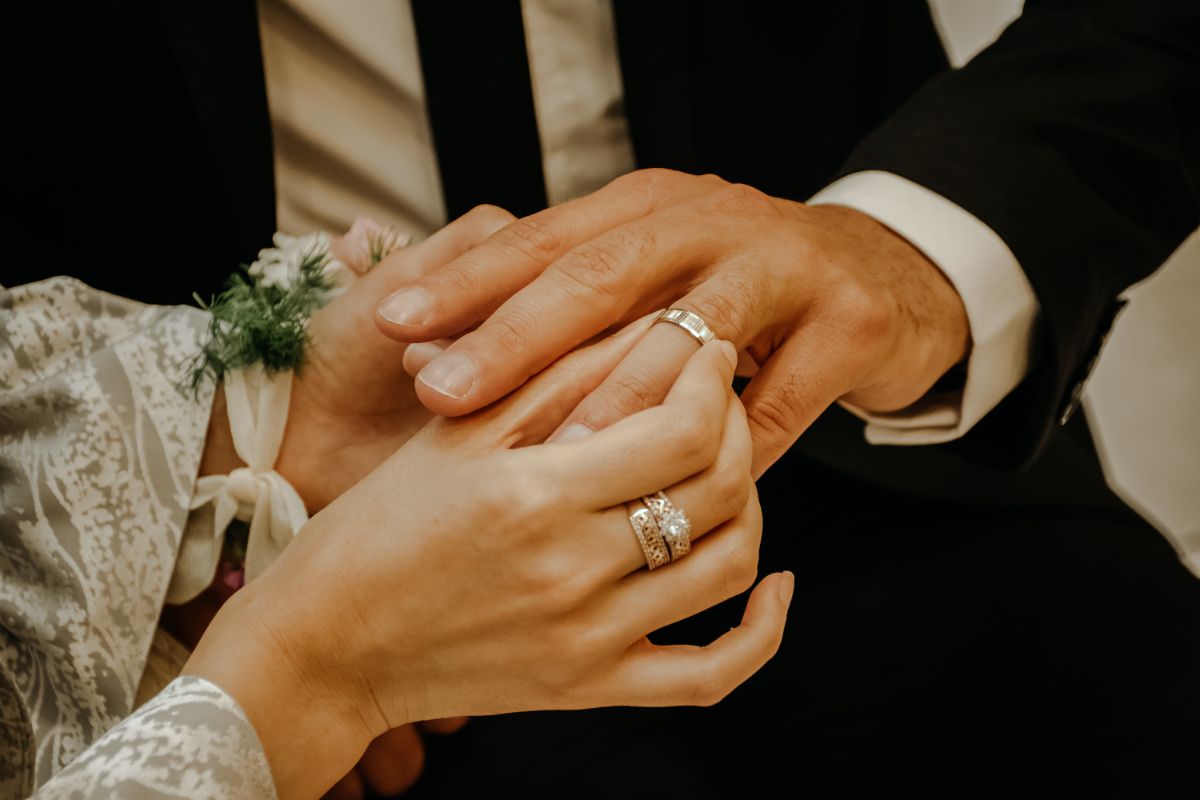Have you found yourself wondering about wedding etiquette? Maybe you are unsure who pays for the wedding cake?

Or are you curious about who traditionally pays for the wedding and want to know more? Regardless of the reason that brought you here, we have the answer for you!
Finding out who pays for the wedding cake can be tricky, especially if you are new to the world of weddings.
You head online for guidance but are met with pages and pages of conflicting and contradicting information leaving you unsure who to trust or where to turn. Stressed and frustrated, you wonder if you will ever know who pays for the wedding cake.
Well, no more! Today, we have the answers for you! Keep reading to find out who pays for the wedding cake and everything you need to know about wedding etiquette. Get ready to go from novice to expert today!
Who Traditionally Pays For A Wedding?
Traditionally, the bride’s family will pay for the wedding. The tradition of the bride’s family paying for the wedding dates back hundreds of years to times when the bride’s family paid for the entire event plus a dowry that was paid directly to the groom’s family or the groom himself.
The dowry was to cover the cost of a home or materials for the new couple or to act as an insurance policy, in the case of separation or divorce.
In some cultures, the dowry also was to attract grooms. Larger dowries would be used to entice potential grooms and make the bride more marriable.
Of course, this is an outdated practice now, but that doesn’t mean there aren’t some parts of the world or families that still use a dowry!
As times change and people move to more modern practices, dowries and the bride’s family paying for the entire wedding are becoming more uncommon.
The groom’s family now undertakes some of the responsibility, paying for aspects such as transport on the wedding day for the bridal party and guests.
Or, more commonly, the happy couple pays for the wedding themselves. More couples are working than before and enjoying a dual income, allowing them to save and put more money aside for their wedding.
In these cases, their families might offer to pay for one or two aspects of the wedding, such as the mother of the bride purchasing the wedding dress, or the groom’s family paying the DJ or band. The rest of the event will be paid for by the happy couple.
Every couple is different and will have their own views about who should pay for their wedding.
More and more people in Western countries, like the US, are moving away from the notion of the bride’s family footing the bill and are paying for the wedding themselves.
However, if you want to follow tradition, the bride’s family pays for the entire wedding ceremony and reception.
Who Pays For The Wedding Cake?
The bride’s family typically pays for the wedding cake. In line with tradition, the bride’s family pays for the entire wedding, including the cake.
The cake, which is typically cut and served by the bride and groom as part of the wedding reception, will range in size and price depending on the cake chosen and how large it is.
Wedding cake is traditionally a fruit cake, but these days, it can be any cake the couple chooses.

Generally, if the bride’s family is paying for the cake, they will have more of a say in the flavor and design of the cake. They will usually set a budget for the cake that the couple must stick to when picking their wedding (see also: Cake And Punch Wedding Reception: For Weddings On A Budget)cake.
However, recently, couples are moving away from the tradition of the bride’s family paying for the entire wedding. The groom’s family might share the cost, or offer to pay for some items. Or, the couple will pay for the entire wedding themselves.
Sometimes, the groom’s family will pay for the cake. This is usually done to spread the expense of the wedding across the family. Weddings are an expensive affair, there is no getting away from it.
So the groom’s family might want to contribute. In these cases, they traditionally pay for the wedding cake, or other wedding favors or desserts.
If the groom’s family doesn’t have a large budget, they might offer to pay for part of the cake, rather than the whole cake.
Or, the couple will pay for the wedding cake themselves. This might be, again, to spread the cost of the wedding. Or the couple might be paying for the entire wedding themselves.
In these cases, the couple must set a budget and be realistic about what they can afford. This might mean that the wedding cake of their dreams is just out of reach. Or they might choose to trim the budget in other areas to pay for the cake they want.
How budgets are set for the wedding cake varies from couple to couple. For example, the couple might not want to spend a lot of money on a cake that isn’t always eaten, so opt for a small cake that will be cut and only served for the immediate family.
Or they might choose to cut a small cake and serve cupcakes to the guests which tend to be eaten.
Alternatively, if the couple loves food, and cake, or is having a large wedding, they might choose to increase the budget of their cake to have a showstopper.
They might decide to have a large food budget and have this as a focus in their wedding. The budget varies from wedding to wedding, so be sure to consider it carefully when planning your wedding.
What Does The Groom’s Family Pay For?
Traditionally, the groom’s family will pay for the wedding suits. Whether the suits are rented or purchased, the groom’s family will pay for the suit, excluding shoes, cover shirts, and extra accessories. This usually covers the groom, his best man, and groomsmen.
The groom usually pays for the flowers at the wedding too. This doesn’t include the bride or bridal party flowers.
The groom will pay for the flowers at the wedding ceremony venue. These will be flowers decorating the aisle, or the flowers worn by the groomsmen.
The bride’s family will then pay for the flowers at the reception and those used by the bridal party, like the bride and bridesmaids’ bouquets.
Of course, as with other traditions we looked at today, this isn’t widely followed now. If a couple’s parents are offering to pay for the wedding or contribute, they might pay for something different.
The groom’s family might offer to pay for the honeymoon or a portion of the reception costs. Or, the couple might pay for the wedding themselves with no financial help from the bride or groom’s family.
Final Thoughts
And there you have it, the wedding cake is typically paid for by the bride’s family. While this tradition is a little outdated, there will still be some families where the bride’s family will pay for the wedding cake and the rest of the event.
No matter who is paying for the wedding cake, be sure to set a clear budget and be realistic about what you can afford!
- How To Make Honey Butter - July 4, 2023
- How To Make Meringue - July 3, 2023
- What Is Shortening? - July 3, 2023









Leave a comment